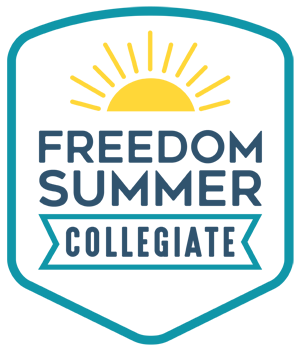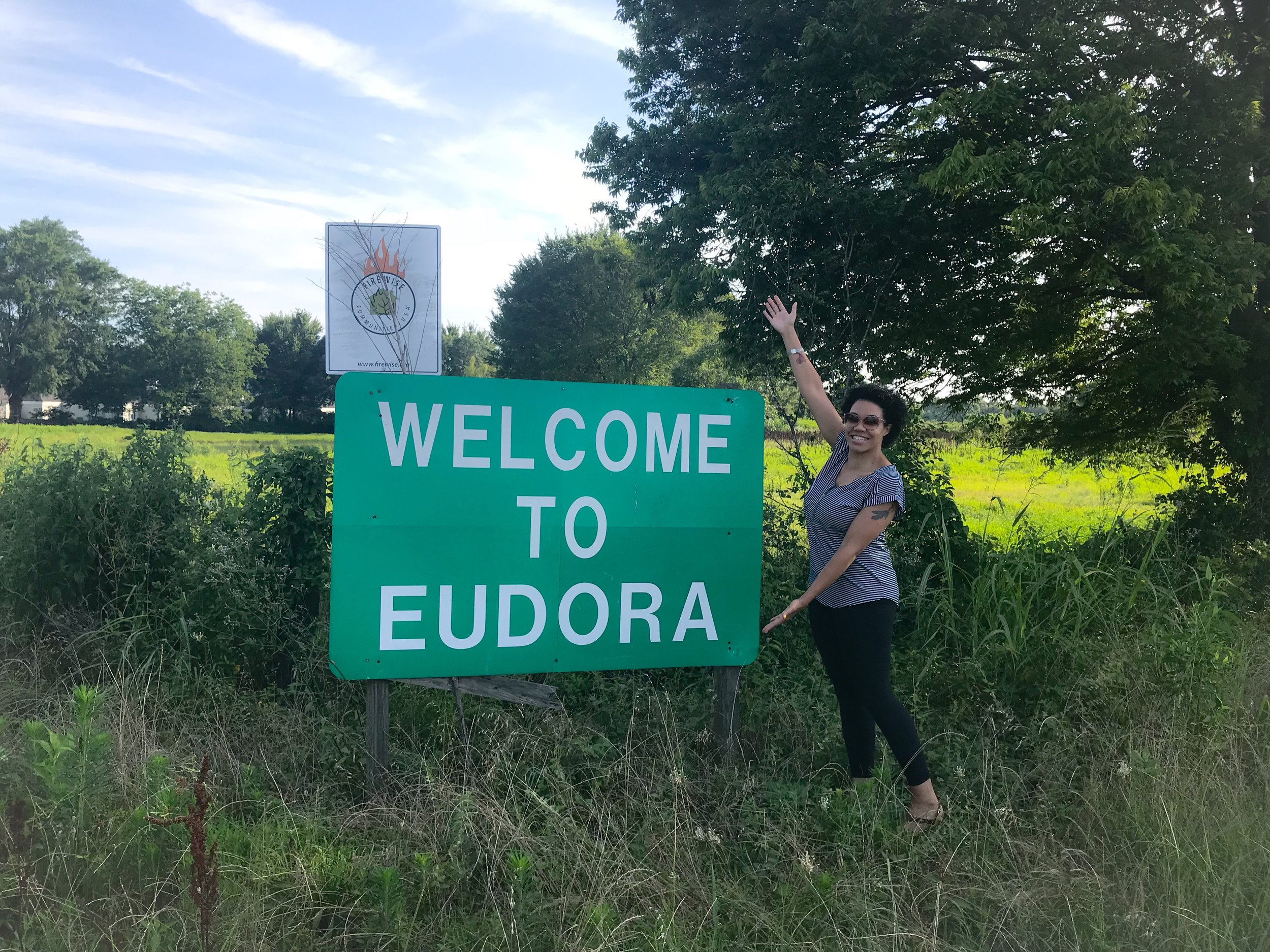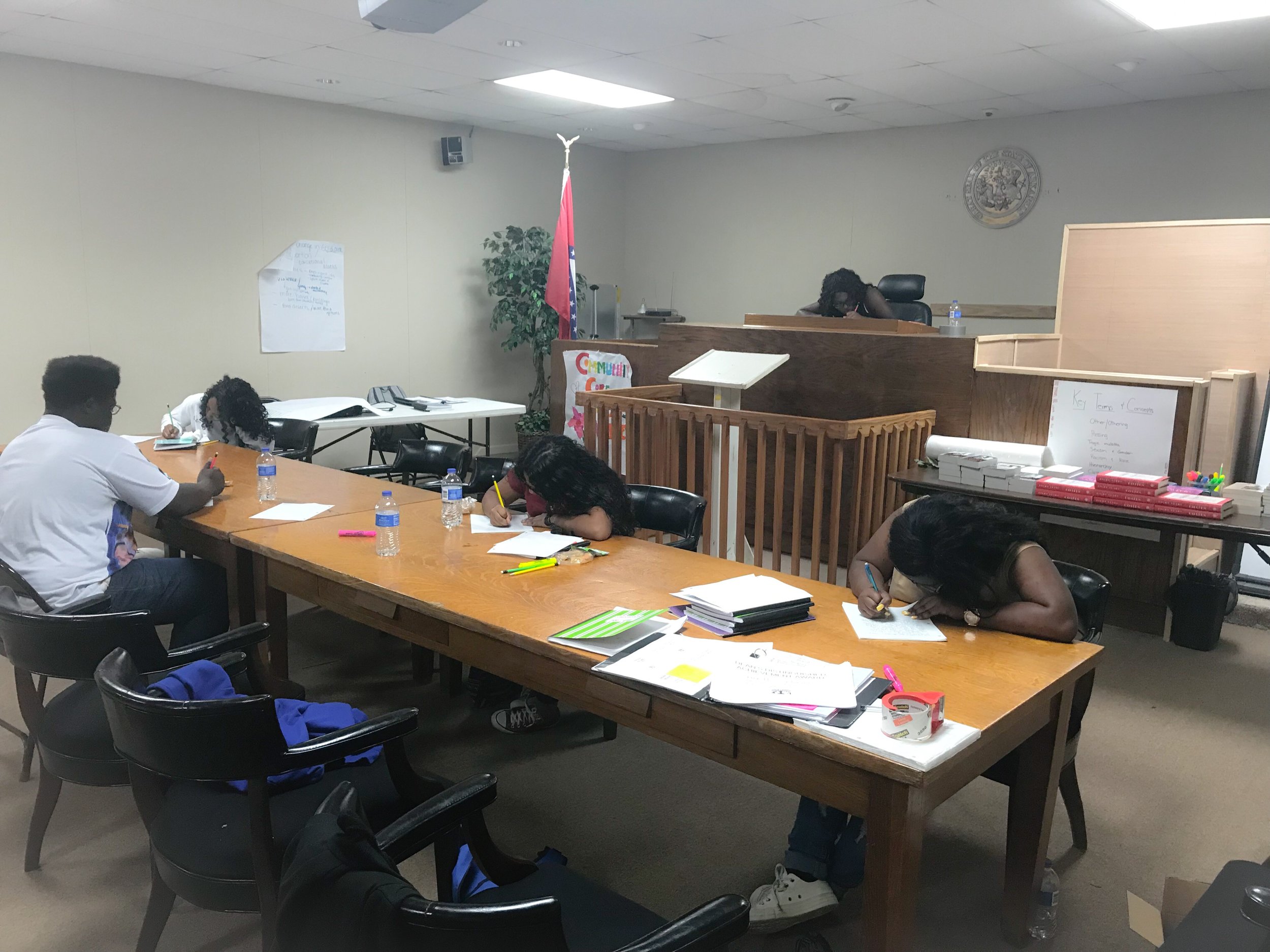Prof. Garrant's Reflection on Summer 2018
I am unsure of where to start, and so I begin somewhere at my “beginning” when I was a much-needed recipient of a teacher’s love and support, which continues to be a motivating factor for my desire to work with our youth and a vital resource for the strength and power I access regularly. I hope you will be patient and take this journey with me as it will shed some light on one I hope you will embark on one summer very soon.
Miss Morris was my second-grade teacher. I do not remember what I learned in second grade but do remember Miss Morris.
“Attention: Sheena Garrant, please report to the principal’s office. Again, Sheena Garrant, please report to the principal’s office,” an announcement came over the loudspeaker. I looked around the class in awe. I never got called to the principal’s office. As a straight A student (I always imagined that earning As would earn my parents’ love and ease the abuse), I couldn’t imagine why I was being called there now.
"Ohs" and "ahs" escaped from several students, as was routine when someone got in trouble, while I stood up slowly from my desk. Miss Morris looked at me and nodded her permission for me to leave the classroom. I met my brother in the hall since his second-grade class was across from mine; we walked together toward the school’s central office. When we got there, the secretary stared blankly at us gesturing us into Dr. Castello's office.
My brother and I walked into the office and sat down facing our principal and another woman. Dr. Castello said, “This nice lady wants to ask you some questions and get to know you better. Please answer the questions as best as you can. Okay?” My brother and I nodded.
“Does your mommy ever yell at you?”
“No,” we said in unison.
“Does your mommy ever get angry with you?”
“No,” we were well-trained.
“Does your mommy ever hit you with her hand?”
“No.”
“Does your mommy ever hit you with a belt?”
“No.”
“Has your mommy ever hit you with anything?”
“Am I allowed to talk to him?” I asked indicating that I wanted to say something to my brother.
“Sure.” The principal and the woman peered at us from across the desk.
I leaned over to my brother and whispered, “Maybe we should tell the truth.”
He leaned back and whispered in my ear, “Keep saying no.”
We looked back at our interrogators. “No,” we said.
When we got off the school bus that day, Poppy was not at work. His Ford Explorer was in the driveway and signaled that something wasn’t right. We entered the trailer and found Mommy and Poppy sitting in the living room. The TV was off.
“Did someone come speak with you at school today,” Poppy inquired.
“Yes,” Bryan and I said at the same time.
“Did they ask you questions about Mommy hitting you?”
“Yes.”
“What did you say?”
“We said no,” Bryan replied.
“OK. That’s the right answer. If anyone else asks you questions, you say no. OK?” I nodded and went to my room.
That same year, I remember preparing to leave school for the day and Miss Morris stopping me. I don’t remember her saying anything. I do, however, remember her kneeling down, putting her hands on my shoulders and looking me straight in my eyes. She didn’t say anything, but I remember feeling safe, understood. At that moment, I felt as though Miss Morris knew my secret, knew my pain and was telling me, “Everything will be okay.” I’ve reflected on that moment countless times throughout the years during some of my darkest moments and have used it as an affirmation that everything would be okay and that I’m meant to be somebody and that anything is possible.
My earliest memory is of Mommy wrapping a leather strap or belt around my wrists, lifting me up, and throwing the loose end of the strap over the shower curtain rod; she secured the end around the self-made shackles. Left hanging from the rod in a pamper, I watched Mommy leave the bathroom closing the door behind her leaving me in darkness.
Everything (not anything) is possible. Miss Morris in second grade and later Kathy Frasier, a high school social worker, unwittingly helped me overcome what would turn into decades of severe trauma. Miss Morris’ words were unimportant. Her body language told me her intent and compassion for little Sheena, an otherwise unloved, severely abused, and neglected child. Similarly, Ms. Frasier was the first person in my life to take action and advocate for my wellbeing in ways I had only imagined possible. The system failed me. Both my biological and adoptive parents failed me. Fortunately, I had access to countless books and sparks from Miss Morris and Ms. Frasier that helped transform my life from what it could have and should have been, based on statistics, to what it continues to become. Ever changing and always the optimist, I dedicate my life to sharing my story, fighting against social injustices, and providing a mirror for and sharing knowledge with our youth in high-risk areas.
“I love you.”
“I love you more,” one student replied. Sound cliché? Absolutely. Those moments of genuine connection and learning happened every day. I built my classroom culture on love, humanism, and the simultaneous embracement of diversity and recognition of similarities (aka Diversity University). All the while, we read a lot (from Nella Larsen to George Schuyler to W.E.B. Du Bois to Langston Hughes to Barbara Chase-Riboud, etc.) and wrote a ton contemplating which came first: race or racism. I came into Eudora, Arkansas with a clear vision of what I wanted for my students that extended beyond any technical learning objectives, and everything I did both inside and outside of the classroom was moving all of us at Eudora toward that goal.
“Everything (not anything) is possible.” I found myself articulating my mantra at the teacher orientation in Jackson, Mississippi. “Every teacher needs not just to claim that anything is possible and say such sentiments to the students. They have actually to believe and be the embodiment of everything being possible,” I told my co-teacher. I told my supervisor. I told my fiancée. I told myself. During my first day of class, I told students, “Everything is possible.” I showed them by sharing a newspaper article that was written and published in 2007 about the obstacles I overcame to become the student commencement speaker as an undergraduate. I told them a bit about what I had experienced since the article in 2007 (both the adversities and successes) and why I was there in front of them this summer. I distinctly remember looking around the table from student to student and co-teacher to co-teacher since those two beautiful people sat in on my first day, too, and taking note of everyone’s facial expressions. Afterward, I gave them the task of writing their autobiography. Each student all shared seven to eight pages of their stories with me. The exchange of nonacademic information set the tone for the rest of the term. I knew before and was able to conclude definitively then that the summer was going to be just as transformative as I had imagined for the students and us Ph.D. students because everything (not anything) is possible.
Everything (not anything) is possible. One of the students texted me and invited me to a basketball tournament that first Saturday in Eudora. I rallied my colleagues, and we spent the day at the tournament. The student was a spectator, not a player, and she thought that we might want something to do that weekend. She was right. I ended up organizing the arrival of other students, and all of us went out to eat afterward. We spent all day with the kids. That opened the door to spending every weekend with them doing something or other (playing Uno, going out to eat, attending church) and trips to one student’s place of work, a restaurant. We even got invited to hang with a student’s parents, other family members, and other parents of students in the community who all expressed their intent to enroll their kids in the program next year because of how much they loved us. Truthfully, the students preferred to spend as much time with us as possible. The feeling was mutual. I spent every lunch break with them walking around the local grocery store or sitting around a table and talking. We always started and ended our school days with hugs and articulations of love. Two of the five students in Eudora refused to shed any tears when we parted ways because, as their moms and they told me, they plan on visiting me during their winter break this year. Just last week, one of their moms texted me that they are “going to make it happen.” I also had the best birthday I have ever had while in Eudora. Until recently, my birthday has always been bittersweet and a yearly reminder of how I don’t have a family and of the abuse I endured. This year’s birthday was a reminder of why I overcame such trauma, why I am who I am, and how I get to choose my family wherever I go . . . and they pick me.
Everything (not anything) is possible. Most people think that business is business and personal is personal and that never the twain shall meet. The most successful people and companies (run, after all, by people) have mastered the art of marrying the two. People are the most critical asset of any system or process. People often behave based on what they think, which influences how they feel. In other words, what people think often determines how they feel which then determines how they behave. My originating intent is that you will embrace yourself. There are no caveats or disclaimers, like “if you’re nice enough.” When you are around me or know me, you will embrace yourself which is another way of saying that you will feel welcomed by me; that trickles down into how you embrace yourself, too, which isn’t to say that you don’t already embrace yourself. My originating intent is something I am continually honing and improving. You won’t have any doubts about whether or not I see you for who you are and recognize you in all of your glory. You might even be confused as to how I can say with confidence and genuineness that I love you because I don’t know you or I’ve only known you for a day, a week, or not at all. I do, though. We can, in fact, and should inform and help transform each other for the better but not in a creepy colonizer sort of way. Instead, we should unabashedly share our ourselves (our knowledge, passions, quirkiness, uniqueness, and experiences) with each other and our youth because you never know (though sometimes you do) who and how you are helping someone including yourself. I was unapologetically myself this summer and in this reflection. I have no regrets. I want you to know what was affirmed in Eudora this summer…that everything (not anything) is possible.





